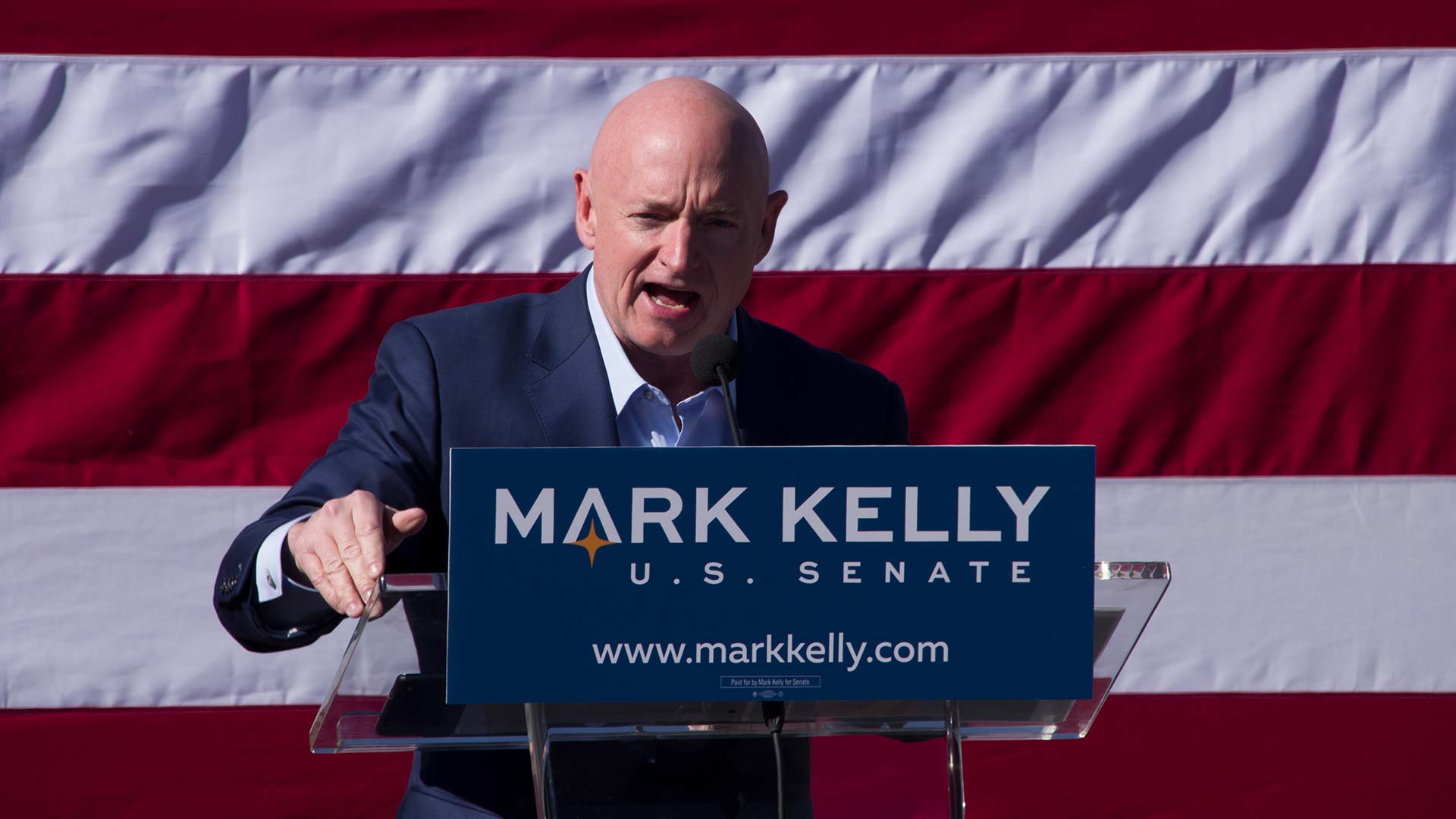 Democratic candidate for U.S. Senate Mark Kelly hits the campaign trail in Tucson. February 23, 2019
Democratic candidate for U.S. Senate Mark Kelly hits the campaign trail in Tucson. February 23, 2019
For some Democrats, Vice President Mark Kelly has a nice ring to it.
But if the U.S. senator, seen as a potential contender to be tapped as Vice President Kamala Harris’ running mate, is chosen and then wins in November, it’d set off a chain of events that would extend Arizona’s nearly decade-long streak of holding elections for a Senate seat every even-numbered year since 2016.
Would Kelly have to resign?
Like his Republican counterpart, Ohio Sen. J.D. Vance, Kelly doesn’t have to resign to run alongside Harris at the top of the Democratic ticket.
But if he and Harris won in November, he’d have to step down sometime before inauguration day, Jan. 20.
Who would replace Kelly?
After Kelly’s resignation, it’d fall to Gov. Katie Hobbs, a fellow Democrat, to replace his successor.
Hobbs’ appointee, by law, would also have to be a Democrat – the same political party as Kelly when he was elected to a full six-year term in 2022.
But that appointee could be temporary.
When there’s a U.S. Senate vacancy, state law also requires a special election be held during the next general election – that’d be in 2026 – to determine who gets to serve the remaining years of Kelly’s term, which expires in 2028.
Kelly was first elected to the Senate in a similar situation. In 2020, he won a special election to serve the remaining two years of the late U.S. Sen. John McCain’s term in office.
How many Senate elections in a row can one state handle?
In Arizona, a lot.
The current streak began in 2016 when Arizonans reelected McCain.
Two years later, the state elected Kyrsten Sinema – then a Democrat – to replace Republican Sen. Jeff Flake, who did not seek reelection in 2018.
McCain’s death in 2018 triggered the special election that Kelly won in 2020. Kelly then ran for reelection in 2022, winning a full six-year term in the Senate.
This year, the race is on to replace Sinema, now an independent who’s not seeking reelection. Congressman Ruben Gallego is running unopposed for the Democratic nomination, while Kari Lake is seen as the frontrunner to secure the GOP nomination.
If Kelly is tapped as vice president, the streak of U.S. Senate elections in Arizona would extend through at least 2030.
There’d be a special election in 2026, then a general election in 2028 once Kelly’s six-year term is up. And in 2030, the winner of this year’s general election would be up for reelection at the end of their own term.


By submitting your comments, you hereby give AZPM the right to post your comments and potentially use them in any other form of media operated by this institution.